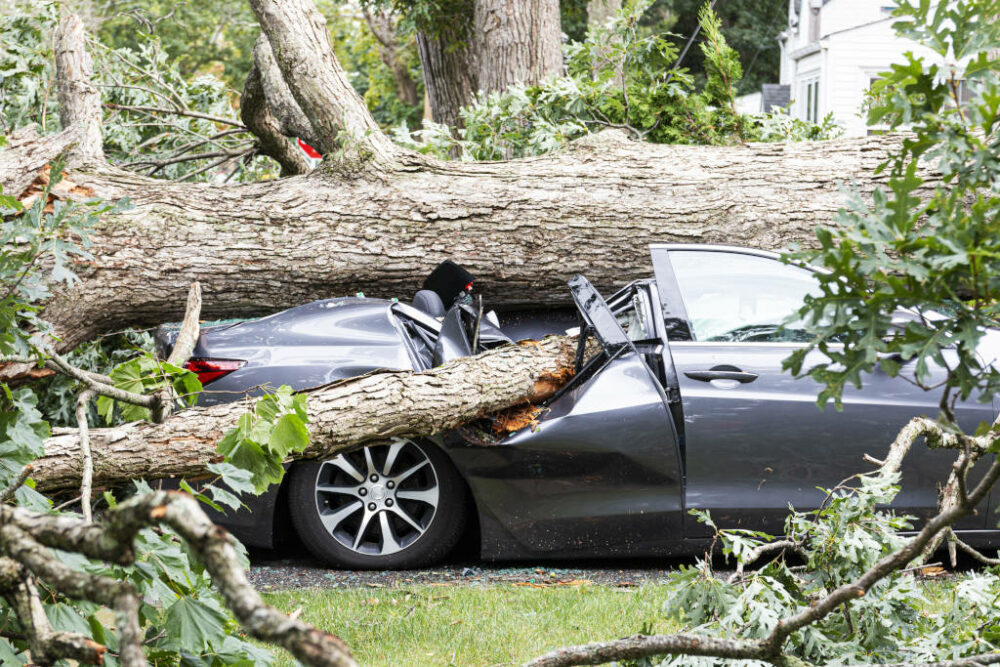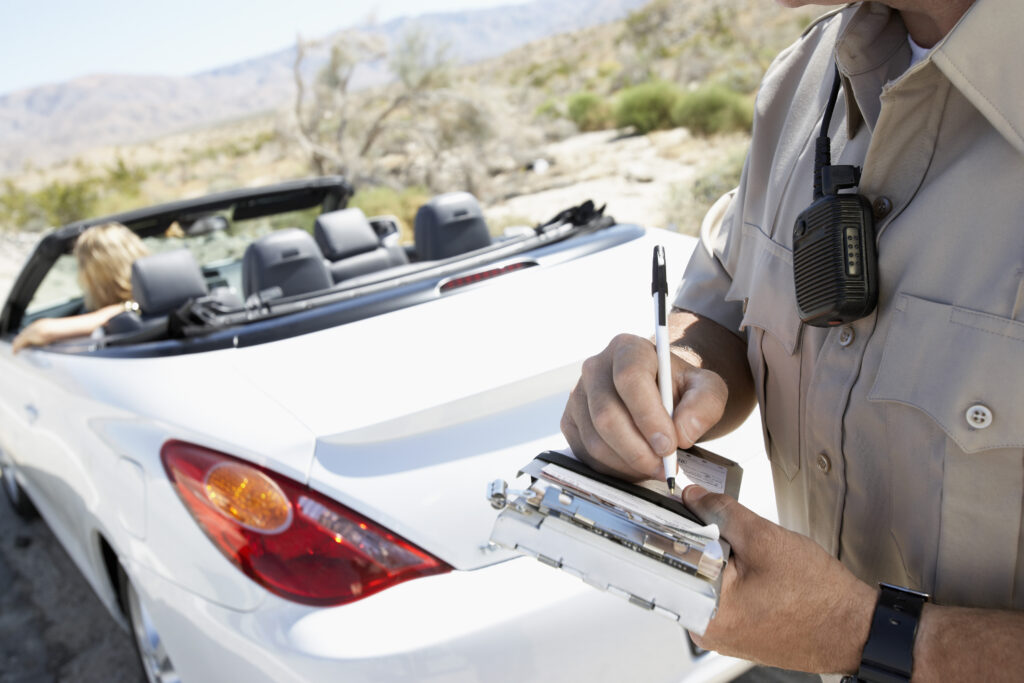The unthinkable happens—you walk out with your keys in hand and see that a giant tree has crashed down on your car. What now? You might feel at a loss after such an event. For starters, you’ll want to know if your policy covers your car when a tree falls on it. This article will explain the insurance implications of trees falling on vehicles.
Am I Covered?
Comprehensive insurance takes care of damage to cars from things out of your control, such as falling trees or objects. You’ll only need to pay the deductible and your insurer will cover the rest up to your limits. If damages are so severe that repair costs exceed these limits, you’ll pay out of pocket for the rest.
Comprehensive covers damage from:
- Falling objects such as trees, limbs, and light poles
- Hitting an animal
- Natural disasters
- Vandalism
- Theft
Note: only drivers with comprehensive coverage will be covered if a tree falls on their car. You’ll have to pay for all repairs if you only have liability coverage.
Does It Matter Who the Tree Belongs To?
You’ll be responsible if it was your tree that damaged your vehicle. However, what if it belonged to your next-door neighbor or the city? Things could get trickier in that case. You’ll need to prove that the person who owned the offending timber was negligent and could have prevented it from falling. Here’s what to expect if the fallen tree didn’t belong to you:
Your Neighbor’s Tree Hit Your Car
Unless you can prove your neighbor was negligent, you’ll still have to pay to repair damages. Your neighbor would only need to pay to fix your car if it was clear that they were responsible for the damage.
Proving negligence isn’t always easy, though. If your neighbor’s tree was dead, unstable, or had low-hanging limbs, you might be able to prove it was their fault. You could also have enough proof if you show that you tried to inform your neighbor about the danger, especially if you have written evidence.
The Tree Belongs to the City
Like if a neighbor’s tree hits your vehicle, you’ll have to prove the city is responsible if something falls on your car in a park, street, or another city-owned area. Keep in mind, it’ll also be hard to gather enough evidence to prove that the city was at fault. You can start by notifying the city about the incident. They’ll remove the debris and might let you know if it was a problem.
If you can’t prove negligence on the city’s part, your comprehensive will cover the damages and you’ll have to pay the deductible.
What Happens If a Tree Falls on My Car While Driving?
If a tree randomly falls on your vehicle while you’re driving down the street, your comprehensive coverage will pay for repairs, minus your deductible. That’s because it’s something that you can’t predict or avoid as a driver.
However, if you crash into a log in the middle of the road, your collision coverage will pay for damages. As with comprehensive, the only thing you’d have to pay is your deductible. This incident is different from an object falling on your car because this would be a collision.
If a tree falls on your vehicle or you accidentally collide with one, it’s important to have auto insurance. Without it, you could end up paying out of pocket for repairs. It’s a good idea to add full coverage, including collision and comprehensive, to your policy so you’re ready for anything.
How Can I Avoid Tree Damage?
Let’s face it, it’s hard to avoid things falling on your car. You’ll often hear it called an “act of God,” because you can’t control it. But there are some proactive things you can do to lessen your chances:
- Park your vehicle in a garage, carport, or other covered areas whenever possible
- Try not to park right under a tree
- Trim loose or low limbs and branches
- Ask your next-door neighbors to keep their trees trimmed and consider cutting down unstable foliage on their property
Frequently Asked Questions
Does insurance pay to fix my car if a tree falls on it?
If you have it, your comprehensive insurance will pay you to fix your car if a tree falls on it. You’d only need to pay your auto deductible. Also, your collision coverage will pay for your repairs if you hit an object while driving.
Who pays when your neighbor’s tree falls on your car?
This largely depends on who’s at fault. In short, if you can prove that your neighbor is negligent , then they’ll pay for the damages. However, you’ll have to pay if you can’t prove that it was their fault. All you’d have to pay is your deductible if you have comprehensive insurance coverage.
What should I do if a tree falls on my car?
Anything falling on your car can be a shocking experience. Below are some quick steps you can take if it happens to you:
- Do your best to document the scene. Use your smartphone or a camera to take pictures of the damage, as well as the tree. Also consider taking notes of the scene, such as where your car was parked (driveway, street, park, etc.). This will be helpful during the claims process.
- Call your insurance provider. The faster you contact your insurer and start the claims process, the faster you can get your vehicle the repairs it needs. Make sure to fill them in on all the details of the incident and follow all their instructions.
- Try to clear away the tree and other debris if it’s safe. Call a tree removal service if you can’t move the timber yourself.
Is a tree falling on a car an act of God?
Most insurers label an incident as an act of God if it’s random and hard to avoid. A tree falling on your vehicle is an act of God because there is nothing you can do to stop it.


